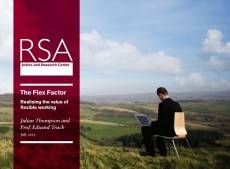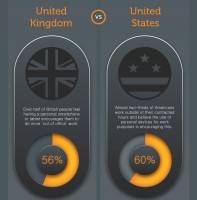July 16, 2013
RSA report claims untapped flexible working benefits of £8bn for the UK
 The latest salvo in the battle to get Britain to adopt even more flexible working comes in a report that carries more weight than some because it is not solely the work of a technology company but sponsored by the Royal Society for the Encouragement of Arts, Manufactures and Commerce (RSA). True, it’s co-sponsored by Vodafone but that is the way of these things. The RSA study estimates that flexible working practices shaped around the personal circumstances of the individual and designed to minimise the routine grind of commuting could give people around 5 more hours per week in which to work.
The latest salvo in the battle to get Britain to adopt even more flexible working comes in a report that carries more weight than some because it is not solely the work of a technology company but sponsored by the Royal Society for the Encouragement of Arts, Manufactures and Commerce (RSA). True, it’s co-sponsored by Vodafone but that is the way of these things. The RSA study estimates that flexible working practices shaped around the personal circumstances of the individual and designed to minimise the routine grind of commuting could give people around 5 more hours per week in which to work.























